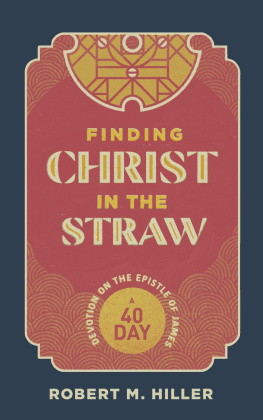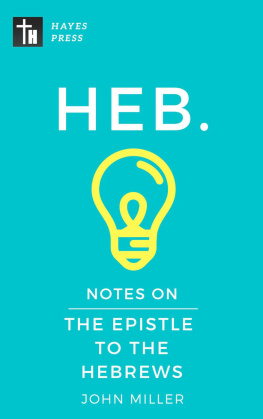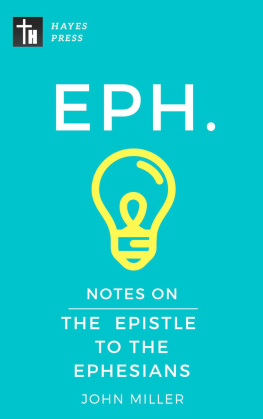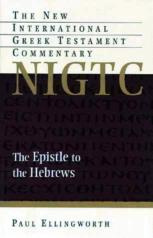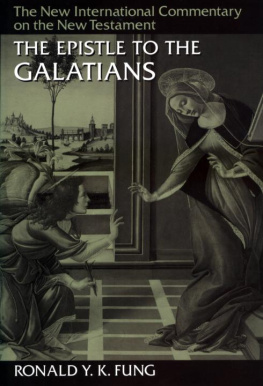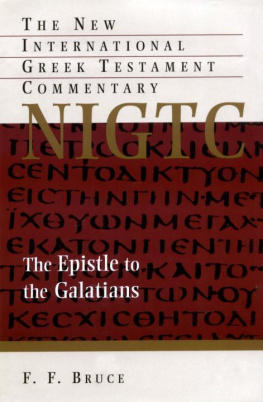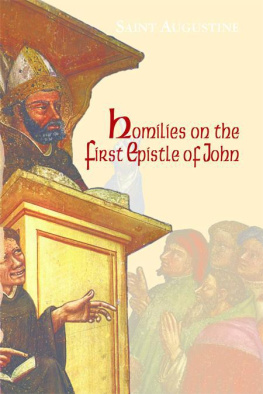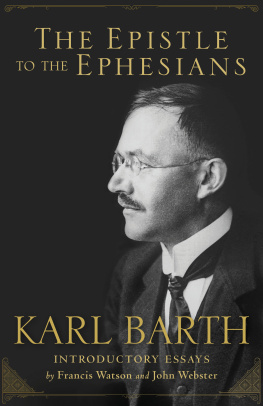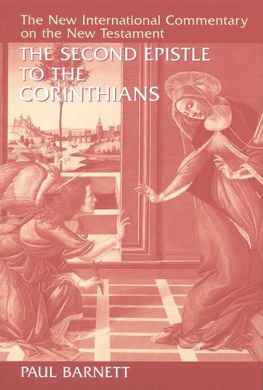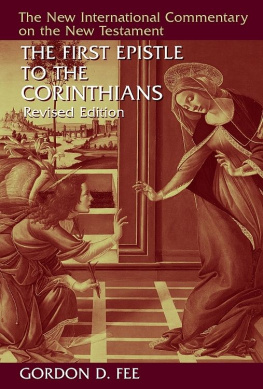Thank you for buying this ebook, published by NYU Press.
Sign up for our e-newsletters to receive information about forthcoming books, special discounts, and more!
Sign Up!
About NYU Press
A publisher of original scholarship since its founding in 1916, New York University Press Produces more than 100 new books each year, with a backlist of 3,000 titles in print. Working across the humanities and social sciences, NYU Press has award-winning lists in sociology, law, cultural and American studies, religion, American history, anthropology, politics, criminology, media and communication, literary studies, and psychology.
The Epistle of Forgiveness
or
A Pardon to Enter the Garden
by
Ab l-Al al-Maarr
edited and translated by
Geert Jan van Gelder and Gregor Schoeler
Volume One:
A Vision of Heaven and Hell
preceded by
Ibn al-Qris Epistle
NEW YORK UNIVERSITY PRESS
New York and London
Table of Contents
Ibn al-Qris Hopes for a Meeting with al-Maarr
Criticism of Heresy and Heretics
On Fate
Ibn al-Qris Complaints of Old Age
The Prophet at the Beginning of his Mission
Ibn al-Qris Weaknesses and Self-Reproach
The Sheikh Exculpates Himself
Praise of al-Maarr
On Memorizing and Forgetting; Ibn al-Qri Complains Again
Library of Arabic Literature
Editorial Board
General Editor
Philip F. Kennedy, New York University
Executive Editors
James E. Montgomery, University of Cambridge
Shawkat M. Toorawa, Cornell University
Editors
Julia Bray, University of Oxford
Michael Cooperson, University of California, Los Angeles
Joseph E. Lowry, University of Pennsylvania
Tahera Qutbuddin, University of Chicago
Devin J. Stewart, Emory University
Managing Editor
Chip Rossetti
Volume Editor
James E. Mongotmery
Letter from the General Editor
The Library of Arabic Literature is a new series offering Arabic editions and English translations of key works of classical and pre-modern Arabic literature, as well as anthologies and thematic readers. Books in the series are edited and translated by distinguished scholars of Arabic and Islamic studies, and are published in parallel-text format with Arabic and English on facing pages. The Library of Arabic Literature includes texts from the pre-Islamic era to the cusp of the modern period, and encompasses a wide range of genres, including poetry, poetics, fiction, religion, philosophy, law, science, history, and historiography.
Supported by a grant from the New York University Abu Dhabi Institute, and established in partnership with NYU Press, the Library of Arabic Literature produces authoritative Arabic editions and modern, lucid English translations, with the goal of introducing the Arabic literary heritage to scholars and students, as well as to a general audience of readers.
Philip F. Kennedy
General Editor, Library of Arabic Literature
To our spouses, Sheila and Christa, asking their Forgiveness for spending so many hours in al-Maarrs company instead of theirs.
Acknowledgments
We are grateful for the encouragement and help we received from the LAL editors, in particular Philip Kennedy, Shawkat Toorawa, and James Montgomery. Our labors were alleviated by the great efficiency and expertise of the LAL managing editor, Chip Rossetti; of the digital production manager Stuart Brown; of Carolyn Brunelle, who extracted a Glossary from our endnotes; and from the copy editor, Kelly Zaug. Of all these it was James Montgomery who contributed most, with his countless stylistic and linguistic improvements and his editorial accuracy. If, on very rare occasions, we disagreed with him and stuck to our own ideas, we hope for his forgivenesswhich is, after all, the leitmotiv of the present work.
Abbreviations used in the Introduction and Translation
| EI2 | , New [= Second] Edition |
| Gh | Rislat al-Ghufrn / The Epistle of Forgiveness |
| IQ | Rislat Ibn al-Qri / The Epistle of Ibn al-Qri |
| L | (in prosody) long syllable |
| O | (in prosody) overlong syllable |
| Q | Quran |
| S | (in prosody) short syllable |
Introduction
The lengthy, mocking reply by a cantankerous maverick, obsessed with lexicography and grammar, to a rambling, groveling, and self-righteous letter by an obscure grammarian and mediocre stylist: this does not sound, prima facie, like a masterwork to be included in a series of Arabic classics. It is even doubtful whether it firmly belongs to the canonical works of Arabic literature. The maverick author, Ab l-Al al-Maarr, was certainly famous, or infamous, as we shall see, but in the entry on him in the biographical dictionary by Ibn Khallikn (d. 681/1282), which suggests that Ab l-Als reply was famous. However, the work is not often mentioned or discussed in pre-modern times, unlike Ab l-Als poetry.
As happens occasionally in the history of Arabic literature, the Rislat al-Ghufrn (The Epistle of Forgiveness), owes its present fame mostly to the rediscovery in modern times, by a western Arabist. Reynold A. Nicholson, in a letter to the Journal of the Royal Asiatic Society, The Epistles subsequent rise to fame is mainly due to the fact that it seemed to prefigure Dantes Commedia Divina and that misguided attempts were made to prove the influence of the Arabic work on the Italian. This thesis has now been abandoned and one can appreciate Rislat al-Ghufrn in its own right.
Ab l-Al al-Maarr
The earliest appearance of al-Maarr in Arabic literature is found in a work by a contemporary, one of the greatest anthologists of Arabic literature, al-Thalib (d. 429/1038). In the supplement to his , he quotes a certain poet, Ab l-asan al-Dulaf al-Mas, who told him:
In Maarrat al-Numn I came across a true marvel. I saw a blind man, a witty poet, who played chess and backgammon, and who was at home in every genre of seriousness and jesting. He was called Ab l-Al. I heard him say, I praise God for being blind, just as others praise Him for being able to see. He did me a favor and did me a good turn by sparing me the sight of boring and hateful people.
Our author is usually called Ab l-Al al-Maarr, As a boy he studied with several teachers, including his own father, in his hometown and Aleppo; his main interest was poetry and he became an ardent admirer of the great poet al-Mutanabb (d. 354/965), on whose poetry he was to write a commentary, entitled Mujiz Amad (Amads Miracle), exploiting not only the fact that he shared his given name with the poet but also, rather daringly, alluding to the Quran, which was the prophetic miracle (mujizah






